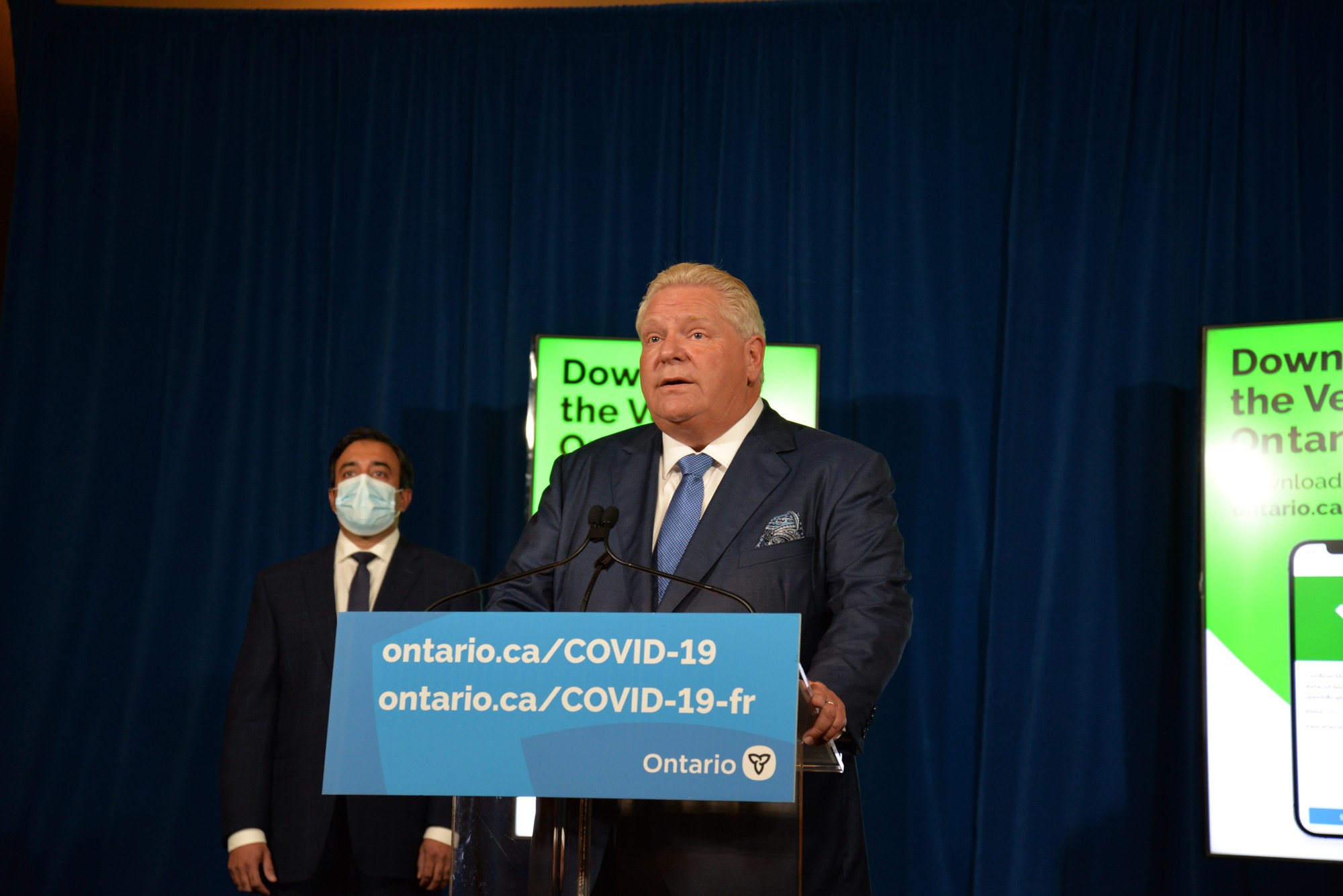Ontario’s indoor dining and fitness centres will be allowed to reopen by the end of January in the first step of a new plan to cautiously ease most COVID-19 restrictions by March, Premier Doug Ford said Thursday.
“The evidence tells us the measures we put in place to blunt transmission of Omicron are working,” Ford said in a morning news conference.
“We can be confident that the worst is behind us and that we are now in a position to cautiously and gradually ease public health measures.”
Restaurants, bars, gyms, theatres and malls can open at 50 per cent capacity as of Jan. 31, with social gathering limits rising to 10 people indoors and 25 outside.
This also includes museums, zoos, casinos and amusement parks, with proof of vaccination still needed for entry.
For restaurants, the reopening plan brings some relief after two years of varying levels of shutdown that has plagued the industry with “historic levels of debt,” a Restaurants Canada official said.
“At 50 per cent, the majority of restaurants still won’t be able to be profitable, but at least they’re getting back to what they’d like to do and that’s serving people,” vice president James Rilett told Humber News.
Nidhi Nidhi, a recent graduate of Sheridan College who works part-time at a McDonalds, said that she isn’t worried about customers coming back inside.
“McDonald’s compared to the last restaurant I worked at is so much better when it comes to taking precautions,” the nursing program alumni said.
Humber College student Giovanni De Freitas is pleased a plan to get back to pre-pandemic life is in place.
“I’m happy we are finally reopening and can start the process to a normal life,” the 4th-year criminal justice student said.
“I personally think we should move to full capacity because really the only big fear here is Omicron and everyone has been double vaccinated and most have had their booster so there is not an immediate threat.”
Humber paralegal student Mahek Khan was not surprised at the reopening but told Humber News the effect on her education is minimal.
“Online learning doesn’t seem to be going anywhere,” the second-year student said.
Humber earlier announced all online classes until Jan. 24, after which “lab-based” courses will resume on Humber’s campuses and “theory” courses will remain online until March 6.
Khan said reopening is great, particularly as pandemic restrictions affected the mental health of students, but that the changes could be uncomfortable.
“It can also be risky and not preferred by students who are comfortable with the online way of life,” she said.
Capacity limits for indoor public spaces will be removed as part of the second step of Ontario’s reopening plan on Feb. 21, with indoor gathering limits set at 25 and outdoor at 100.
Sports venues, concerts and movie theatres will remain at 50 per cent capacity in February.
Another 21 days later on March 14, all indoor public capacity limits will be lifted where vaccination proof is needed, with the exception of nightclubs and wedding receptions where there is dancing.
Ontario, and much of Canada, had started a reopening effort last fall before the rise of the new Omicron variant sent infections and hospitalizations skyrocketing.
Minister of Health Christine Elliott emphasized the government was approaching reopening with care to avoid a resurgence of COVID-19.
“We will continue to take a gradual and cautious approach to lifting public health measures to protect our hospital capacity and ensure patients can continue to access the care they need,” Elliott said.
She told the Thursday press conference there are “positive signs” the Omicron wave will soon peak. Infections have been on a downward trend since hitting a record 18,000 cases on New Year’s Day.
There were 7,757 new cases of COVID-19 in Ontario on Jan. 20. Hospitalizations continue to rise, with 4,061 admitted across the province, according to the latest public health agency data.
Ontario’s chief medical officer praised the efforts of Ontarians getting their COVID-19 vaccination booster shots and adherence to safety measures such as physical distancing.
“The months ahead will require continued vigilance, as we don’t want to cause any further disruption to people’s everyday lives,” said Dr. Kieran Moore.

